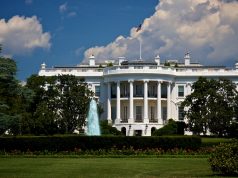FDA investigate “vaping-related” seizures
In the latest manufactured anti-vaping health scare, the FDA is investigating whether there’s a link between e-cigarette use and seizures. According to the agency they’ve received “dozens of reports” that indicate a “recent spike” in incidents, and they’re now trying to pin down the cause of these alarming events.
On closer inspection it turns out that the FDA is investigating a total of 35 reports that span a nine—year period, from 2010 to 2019. That works out at less than four a year. For comparison, around 1% of the US population will suffer a seizure each year – around 3.3 million people.
While the media is busy broadcasting the scare as widely as possible, even the FDA itself is being cautious about claiming any link. In a statement released last Wednesday the agency said it didn’t know if there was a relationship, and admitted that the cases they’re studying don’t show any pattern. They say seizures have been reported in both novice and experienced vapers, and can occur between minutes and 24 hours after using an e-cig.
As the proposed “link” is nicotine – which can cause seizures if too high a dose is ingested – it’s worth noting that several of the cases being examined by the FDA involve people who took only a few puffs before going into seizure. It’s impossible to ingest anything like a harmful dose of nicotine this way. The fact is, the number of reported cases is orders of magnitude to small to even be a statistical blip.
Hawaii lawmakers freeze flavour ban
An ambitious plan to make Hawaii the first state in the USA where vapers are compelled to use cigarette flavours was put on hold last Thursday, as state representatives deferred it past the deadline for this legislative session.
The new legislation would have banned all vapour products that violate FDA labelling requirements – which, obviously, means they’re banned already – as well as those that “market to children”. However its main provision was a prohibition on any flavoured tobacco products except menthol. That would restrict e-liquids to tobacco or menthol flavour, as many legislators still seem unable to grasp that they don’t taste of tobacco unless you add flavouring.
Luckily, to pass in this session the bill had to be submitted by 5 April. On 4 April the Hawaii House Of Representatives finance committee deferred it, meaning it missed the deadline. A spokesperson for the committee said this was a complex issue and, to support the bill they’d need hard evidence it would be effective. Needless to say, this isn’t going to be easy to find.
India tries again on vaping ban
Last month, Delhi’s High Court blocked an attempt by the Indian government to impose a total ban on vapour products; now the country’s harm reduction opponents are trying a different approach. Multiple groups and agencies are either spreading misinformation or trying to restrict sales indirectly.
One of the most egregious offenders is the Voluntary Health Association of India; their chief executive recently claimed that e-cigs “pose significant health risks that are frighteningly similar to those of conventional cigarettes.” This statement contradicts all the available evidence and appears to be an outright lie.
Government agencies are also joining in. Customs authorities recently ruled that all imports of vapour products need to be cleared by the drug controller, while the Ministry of Electronics and Information Technology is proposing a total advertising ban on reduced harm products.
Alabama brings in pointless age limit
Up to now three states – Alabama, Michigan and Pennsylvania – have had no state laws enforcing an age limit for buying vapour products. Last Thursday Alabama starts rectifying this gap by passing HB41, which prohibits the same of vaping devices to anyone under the age of 19.
No responsible vaping advocate has a problem with banning sales to younger teenagers, as long as there’s an approved way go get vapour products for teens who already smoke. Unfortunately the bill also restricts the flavours that can be used in e-liquids, which will make it harder for adult smokers to quit.
The really annoying thing is that the bill is unnecessary. Federal law already bans sales to under-18s, so there’s no requirement for states to bring in their own age limits. Unfortunately, many are seizing on this as an excuse to enforce a higher limit.








